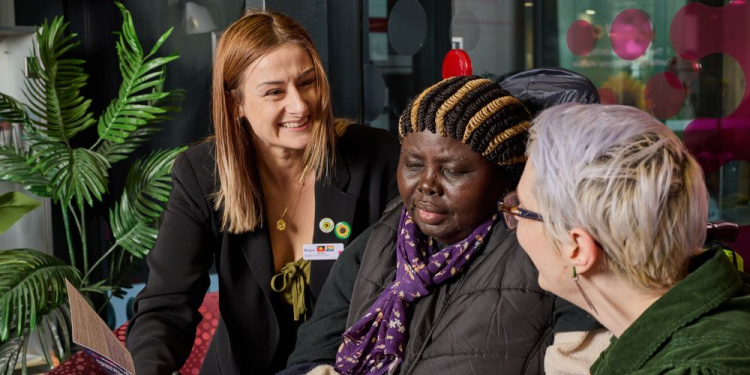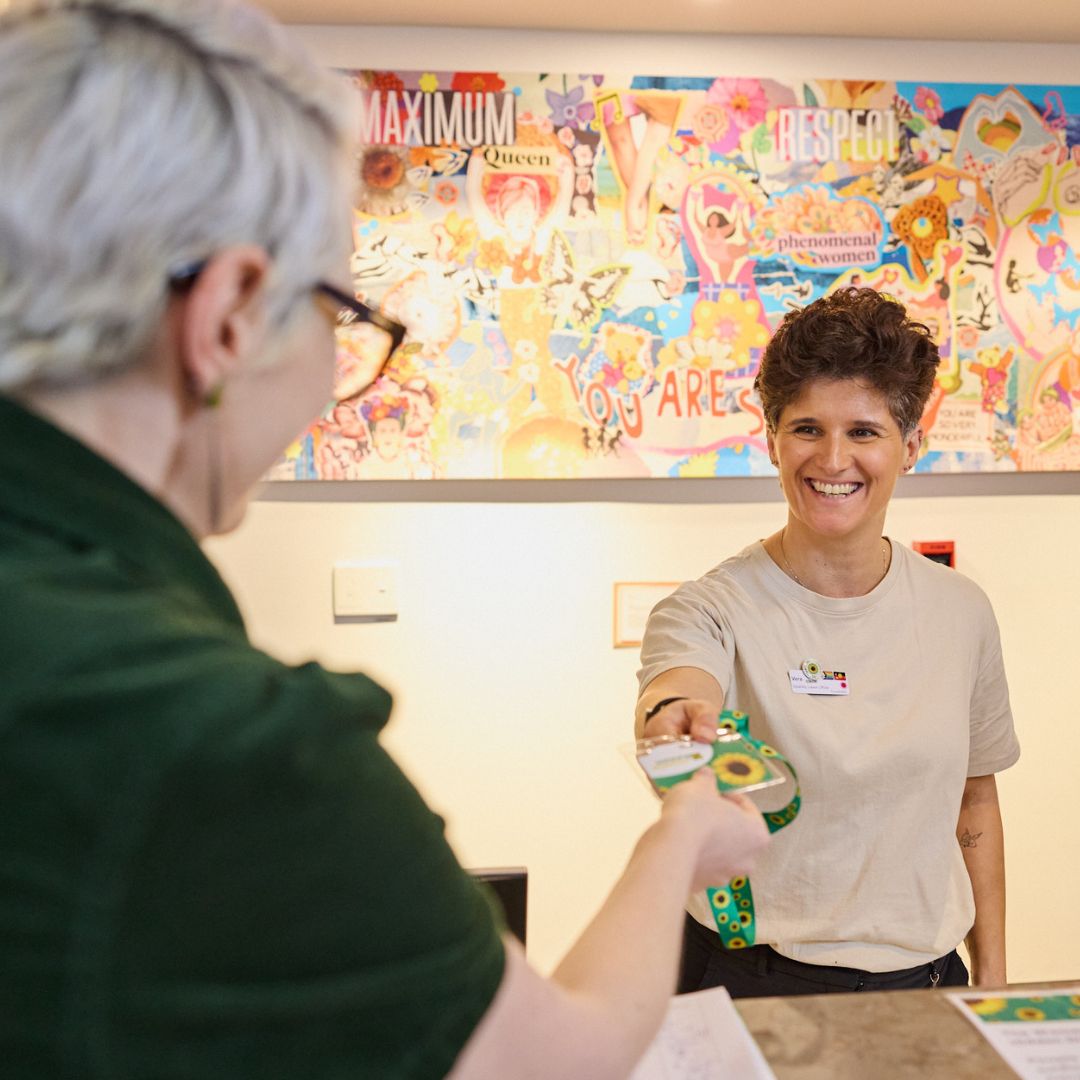
The Women’s is making strides towards becoming a disability confident organisation. This commitment is vital to ensuring equal access to inclusive, respectful healthcare. It also helps to foster an equitable workplace for our staff and volunteers.
In Australia, one in five people live with a disability. A disability is a physical, mental, intellectual, or sensory condition that affects a person’s ability to do everyday activities or interact with the world around them. While some disabilities are long-term or permanent, others can be temporary or change over time.
Recognising disability for tailored care
The Women’s was recently named a Sunflower Friendly organisation by the Hidden Disability Sunflower program. The hospital has now trained more than 340 Sunflower Supporters to help people who identify as having a hidden disability with extra support, understanding and time.
People with hidden disabilities, including patients, carers, visitors, and staff, can ask for a sunflower lanyard or wristband at the Women’s Welcome Centre. Wearing a lanyard or wristband helps others understand the wearer may need support.
Julia, a nurse-midwife with disability, shared what the Sunflower means to her: “The Hidden Disability Sunflower represents an opportunity for people like me to advocate for ourselves when our disability is not necessarily visible.
“Having a symbol to support me, gives me confidence that I will be taken seriously, and I will receive the help and support that I require.”
Patients and carers can also self-report a disability through the Disability Identifier in Health Hub. The Health Hub is an app that connects patients with their hospital information, such as appointments and test results.
A patient’s responses to the Disability Identifier are visible to their healthcare team through the Electronic Medical Record, allowing care to be tailored to the needs of each individual.
Having launched in 2023 in collaboration with the Royal Children’s Hospital, Royal Melbourne Hospital, Peter MacCallum Cancer Centre, Austin Health, University of Melbourne and Healthy Trajectories, an independent evaluation has now been completed. This initial evaluation showed that the questions are useful for identifying people with disabilities. Further research is now underway to investigate how to better embed and utilise the Disability Identifier at the Women’s.
Supporting every journey
Helping  to foster a culture of disability confidence is our Disability Liaison Officer (DLO), Vera. Vera helps patients find their way through the hospital environment, which can be complex and overwhelming. She ensures their voices are heard and their rights are upheld with compassion and respect.
to foster a culture of disability confidence is our Disability Liaison Officer (DLO), Vera. Vera helps patients find their way through the hospital environment, which can be complex and overwhelming. She ensures their voices are heard and their rights are upheld with compassion and respect.
Vera shared: “At the Women’s, people with disability receive personalised care plans and tailored accommodations designed to meet their unique needs.”
These plans can offer support for various communication styles, sensory changes and advocacy from the DLO.
“Feedback from patients has been overwhelmingly positive, with many expressing deep appreciation for having a dedicated advocate who truly listens and supports them,” Vera said.
“Disability isn’t just about a condition; it’s also about the barriers people face in society. Understanding disability helps create a more inclusive, respectful and supportive environment where everyone has equal opportunities to participate fully in life.”
Sherri Huckstep, Chief eXperience Officer, said there has been significant progress made in achieving the Women’s goal of becoming a disability-confident organisation over the past few years.
"At the Women’s, we've really committed to taking an organisation-wide approach to improving the experience for people with disabilities,” said Sherri, who is also Executive Sponsor of the Disability Action Plan.
“I have been proud to see new partnerships and research initiatives flourish. We have also taken steps to improve our physical spaces and communication methods.
“While we have more to do, we have a lot of champions right across the hospital who will help get us there.”
Find out more about accessing disability support services at the Women’s on the Disability Services page.
Read the Women’s Disability Action Plan 2022-2025 on the Disability Action Plan page.